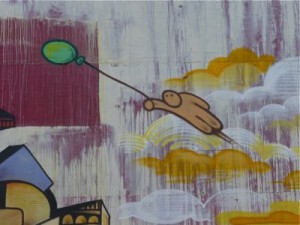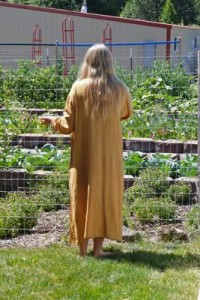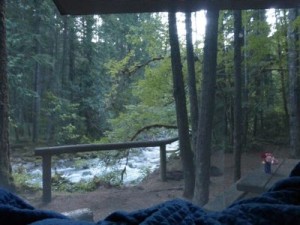Managing Your Energy, Part 15: Dances with Groups, Part 1: Reading Energy Accurately

During a spiritual retreat, I walked to a nearby river with two other women. P. discovered in conversation that have had a strong voice for avoiding gluten cross-contamination at group events. She would not discuss it.
After a short and awkward silence, the second woman, A., said she had been uncomfortable further up the river. She felt disrupted energy in that spot, as if something had happened in the past.
“You mean back by the bridge?” I said. A. nodded. “I noticed the same thing last year. I felt scared there. What did you experience? A number of people, right?”
“Yes. Native American, I think. People died,” she told me.
“That’s what I got too. A fight, by the edge of the river. About six or eight people.” A. put her cute toes in the water and stirred black sand. “Let’s go clear it out? Do you want to?”
A. smiled and stood up, coming almost to my shoulders–tiny but mighty.
As we walked upriver toward the spot I said, “Lots of people get shut down around food issues. I hope P. will still be open with me, since I’d like to get to know her better.”
A. said, “Is this conversation about wanting to be friends with someone and feeling vulnerable?”
I laughed. “Yes, exactly.” A. looked nervous. A small hand had flown to her mouth, as if to keep inside what had already rushed out. I peered down at her and said, “Hey. You don’t have to worry about cutting all the way through to the underlying reality around me–or anything else you may care to say, about me or about yourself. I’m fine with your insight.”
A. melted and embraced me. “Really? I’ve had that before and the people went away.”
“I’m not going to go away,” I said. “We can be open with each other.”
A. extended a soft but strong little hand and we shook on it. We fell into step together with a sense of depth and trust, embarking on an adventure.
Clearing the land did not take us long. Our perceptions matched exactly, and our energy worked well together. A. let me direct her since she hadn’t done this before.
 Once we cleared left over energy from a lethal fight on the far bank of the river, A. noticed fear and shock on the near bank. I felt it too. Onlookers had been connected with the people in the fight, and watched them die. We both sensed this, and that several bodies had fallen down the short cliff to the river. The land felt normal to us when we left.
Once we cleared left over energy from a lethal fight on the far bank of the river, A. noticed fear and shock on the near bank. I felt it too. Onlookers had been connected with the people in the fight, and watched them die. We both sensed this, and that several bodies had fallen down the short cliff to the river. The land felt normal to us when we left.
As we walked back to the retreat A. asked how I held my focus in order to do the clearing. I said, “You totally ‘get it,’ and you will be able to do this kind of thing because you have an accommodation that most people haven’t developed. You have the ability to separate the skeins–like clumps of yarn–of your personal emotions and responses from your direct perception of what is outside. This skill is essential to reading energy accurately.
“What I did was to stay with myself, grounded in my body, with part of my perception, and use a second part independently to scan and sense what was going on. When I had you place the scene of the incident inside a bubble, and hold it there, this boundary helped screen out anything irrelevant from the environment and focus perception. Then I felt into what was going on with the energy and accessed Guidance to know what to do to shift the energy.”
Part of that had been inviting the souls involved to forgive, reclaim, and move on, and blessing them with peace. Part of it had been updating something like a time rift on the land, to allow the present to fully penetrate the location of the incident, where had time seemed frozen.
The next day I spoke with a man who had been stuck and confused for a long time. He was unable to separate Guidance from emotional reaction. His lack of discernment made life navigation difficult.
This contrast underscored what I had been saying to A.: Learning to discern and separate personal reaction from perception is crucial for accurate intuitive work.
In what way do YOU need to be able to trust yourself in order to become more confident reading energy?
What do you need to do to develop this trust?



















